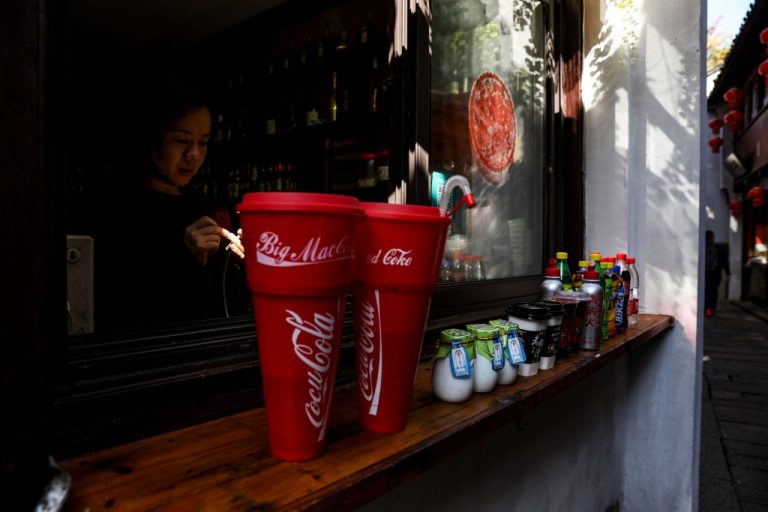Chinese-born American citizen, You Xiaorong, was recently convicted for stealing $120 million worth of U.S. trade secrets from Coca-Cola and other companies who develop coatings for the inside of beverage containers to benefit the Chinese Communist Party (CCP). The 59-year-old was convicted of conspiracy to commit economic espionage and wire fraud following a 12-day trial.
You was charged with stealing methods for the formulations for bisphenol-A-free (BPA-free) coatings used inside beverage cans.
You, who began working in the U.S. almost three decades ago, was employed by Coca-Cola and Eastman Chemical Company when she conducted the intellectual property theft. Her position at Coca-Cola between 2012 and 2017 granted access to the soda giant’s BPA-free trade secrets. Between 2017 and 2018, You worked at Eastman where she once again had access to key proprietary intellectual property.
According to a Press Release from the Department of Justice, the technology was developed by companies such as Dow Chemical, Akzo-Nobel, Sherwin Williams, BASF, Eastman Chemical Company, and PPG.
“Until recently, BPA was used to coat the inside of cans and other food and beverage containers to help minimize flavor loss and prevent the container from corroding or reacting with the food or beverage contained therein. However, due to BPA’s potential health risks, companies began searching for BPA-free alternatives. As witnesses from the chemical and coating companies testified at trial, developing these BPA-free alternatives was a very expensive and time-consuming process,” said the Release.
Success
You are now signed up for our newsletter
Success
Check your email to complete sign up
The DOJ says You Xiaorong committed the theft to set up a BPA-free coating company in China. She and her corporate partner received millions of dollars from the communist regime to support the new company. Xiaorong also had links to the Thousand Talents Plan created by the Communist Party to recruit experts from all over the world.

The U.S. government had earlier warned China plans to use Thousand Talents experts to grow economically and militarily in their quest to become the world’s leader. In 2019, a Senate Permanent Subcommittee on Investigations released a report stating that Beijing had used the Thousand Talents Plan in the past two decades to exploit American academic institutions and research labs.
The problem of CCP infiltration is so considerably imminent that the FBI is opening an espionage case connected to China every 10 hours. FBI Director Christopher Wray made the admission at a recent Senate Intelligence Committee hearing. Wray warned that China presents the most “severe threat” to America’s economic security, innovation, and democratic ideals.
According to Wray, almost 2000 cases are being investigated by the FBI that tie back to the communist regime. Wray also revealed there had been a 1300 percent rise in economic espionage cases “over the last several years.” Like Taiwan and the UK, America’s allies are also tackling the problem of Chinese espionage and cyber threats.
Taiwan charges Chinese spies
Taiwan recently charged a Chinese spy and his wife with money laundering. A defected CCP spy accused the two Chinese nationals of having hired him to run interference operations. The former agent, Wang Liqiang, had defected to Australia in 2019. He admitted to having interfered in Taiwan’s municipal elections and Hong Kong’s democracy movement on behalf of the Chinese communist regime.
Xiang Xin and his wife Gong Qing were arrested in November of 2019 while leaving the island nation following Wang’s expose. The couple is being investigated under Taiwan’s National Security Act and is believed to have received $HKD203 million ($26 million USD approx.) in illicit profits.
Independent researcher Alex Joske stated that Xiang had widespread ties with some segments of the CCP’s People’s Liberation Army, which are known to be highly active in the arenas of espionage and political interference, “Wang’s claims seemed to challenge the conventional understanding of military intelligence,” Joske told Australia’s The Age.
“The Chinese government quickly hit back with its counter-narrative, claiming Wang was a convicted fraudster. Xiang Xin even denied knowing Wang. This was the beginning of the bogus claim that Wang was an agent for Taiwan’s Democratic Progressive Party,”
The UK cracks down on spies
The British government has proposed a bill that targets foreign spies operating in the country. It mandates all individuals living in the UK and working on behalf of a foreign government must be registered on penalty of criminal charges. Prime Minister Boris Johnson is scheduled to announce the bill on May 11, according to UK’s The Times. Also, the Johnson government is planning to update the Official Secrets Act to include cyber attackers from hostile countries.
MI5 recently warned that over 10,000 British nationals had been targeted by the CCP and other foreign entities in the past five years. According to Financial Times, spies often initiate contact with victims through networking sites before manipulating them into stealing critical secrets. UK intelligence agencies plan on educating almost 450,000 government employees and the country’s academics about the threat posed online.
There is also a growing concern that the Party’s spies can tap into British communication networks. The alarm was first raised by former soldier General Lord Dannatt who claimed operatives located in other countries, such as China, can now eavesdrop on any non-encrypted calls made between the British military, government officials, or the public, whether they are located inside or outside the country.
“China has a very sophisticated capability when it comes to phone intercepts,” a former military intelligence officer said to Mirror. “Military can assume their calls, if they aren’t encrypted, can be intercepted and no matter how innocent the calls may seem, they could be of value.”
“Meeting timings, names of other callers, dates, times and places, everything when fed into the general intelligence picture can be cross referenced to gain valuable information…And that means you can assume the same can be said of any member of the public,” said the unidentified officer.
















